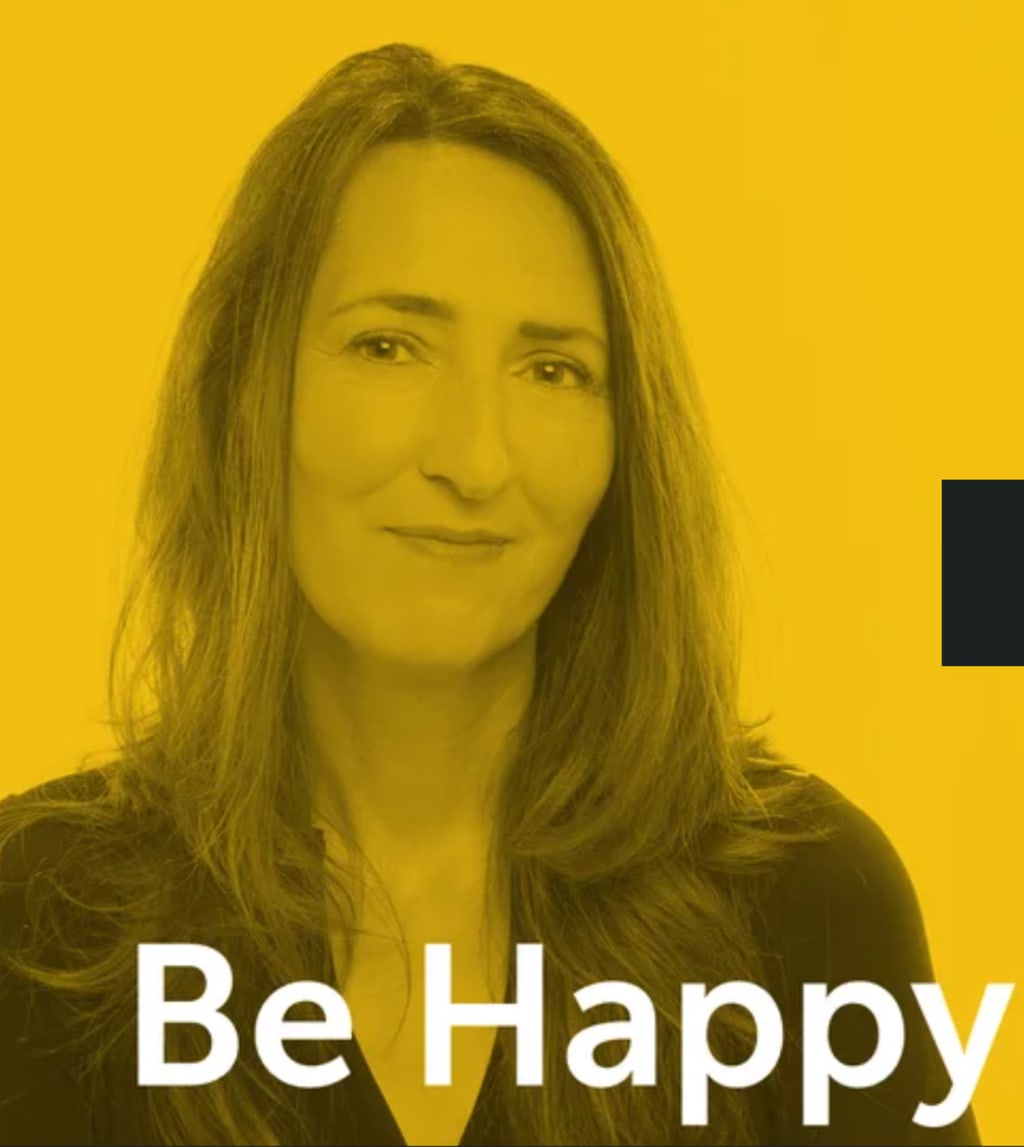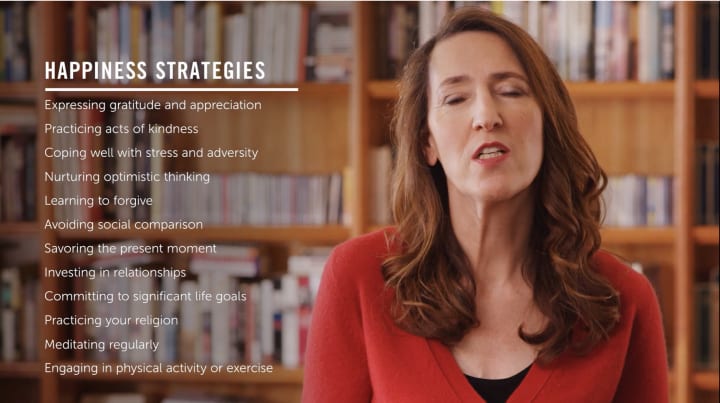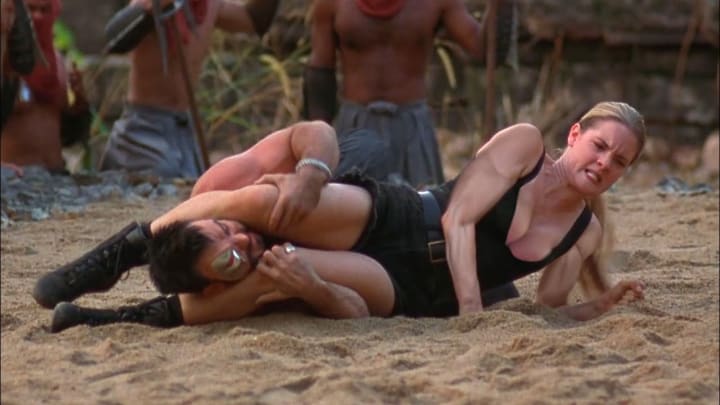Money can’t buy happiness, but can you be paid to be happy?
Promise of a payoff prompted me to take an online course on happiness, but were there results?

Early into the course Be Happy: How to Bring More Joy to Your Life participants are asked the following: “Please introduce yourself to the class. Who are you? Why did you decide to join the class? What are you hoping to learn?” My answer was blunt:
I joined because I could get a $100 gift card if I did, this seemed like the easiest option.
My health insurance (United Healthcare) offers wellness programs where you can earn gift cards for completing them. I don’t need to lose weight or quit smoking. The easiest option seemed like the course on happiness. I was clearly not the only person who was not fully invested in it; I saw multiple other people answer those first questions with just “Hi” or “Hello” thereby technically completing the task without actually doing it.
Did I really need to learn to be happy? According to the course assessment I’m slightly below average for happiness but a bit above average for optimism. This sounds about right--you kind of have to be an optimist to keep going as an unknown writer (“This, this, is the article that people will notice.”) Anyone can take the assessment for happiness and optimism if you want to check your own score.
But is it even possible to become happier outside of drugs, prescribed or otherwise? Well at least according to this course, yes. Half of how happy you are in life is genetics. This is a baseline of happiness that we tend to come back to after the highs and lows of life have passed. Another 10% of happiness comes from external circumstances--that is, people who are financially secure are happier.

This then leaves 40% of your potential happiness that you can actually have some control over. So what can you actually do to be happy? Here’s the list:

You may have heard some of these before, but the course goes into more detail about them. For example, I’d tried multiple times in the past to do a daily gratitude journal but found I couldn’t keep it up for very long. Dr. Sonja says don’t actually try to do it that often because it just becomes a chore. Instead try making note of something you’re grateful for once a week.

Another idea expanded upon is forgiveness. We can generally be happier if we forgive others who wronged us--keeping in mind that this is something we do for our own sakes, not theirs. This concept is not new to me but something about it has always bothered me: some people don’t deserve forgiveness. According to Dr. Sonja we don’t have to feel obliged to forgive acts that are too heinous. I don’t see a reason to forgive the two guys who assaulted me and I’m not going to.

The course was designed to be done over 3 weeks, but I did it over about 3 days because I wanted to get that gift card money. I could have done it faster but I was actually making an effort to do the assignments. We were supposed to plan a day with acts of kindness so I made an appointment to give blood. One task was to spend a day capturing images of things we’re grateful for, so I did that too.

I didn’t agree with everything from this course though. In principle yes, avoiding social comparison is a good idea, and I get annoyed when I hear people whine about not having as much stuff as other people. That doesn’t mean though that I can just turn off the part of my brain that measures myself against other people.

The point that really made me grind my teeth though was “practicing your religion.” Several times throughout the course Dr. Sonja references the spiritual nature of happy people. Quite simply, I am an atheist. It is not a stance I take because it will make me happy, but because its the truth. I recognize that religion can offer community and meaning that make people happy. However, religion can too easily lead into dangerous directions.

Did the course make me happy though? I don’t know man. Right after I finished it I had to put in a lot of extra hours at work, which made me unhappy. I’ll try to do some of the exercises Dr. Sonja suggests but I’ll likely return to my baseline level of happiness. Quite frankly the most miserable people I know are fixated on their own happiness. Happiness is something that occurs as a by-product of pursuing other goals, in my view anyway.
And that $100 gift card? It wasn’t for me, I gave it to my wife. A form of investing in relationships.
------------------------------------------------------------------------
One more exercise we did in the course: writing about your best possible life. Ideally for me, I’m making a living off writing. Perhaps you’d like to help by leaving a tip? :)
About the Creator
Buck Hardcastle
Viscount of Hyrkania and private cartographer to the house of Beifong.






Comments
There are no comments for this story
Be the first to respond and start the conversation.